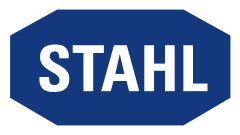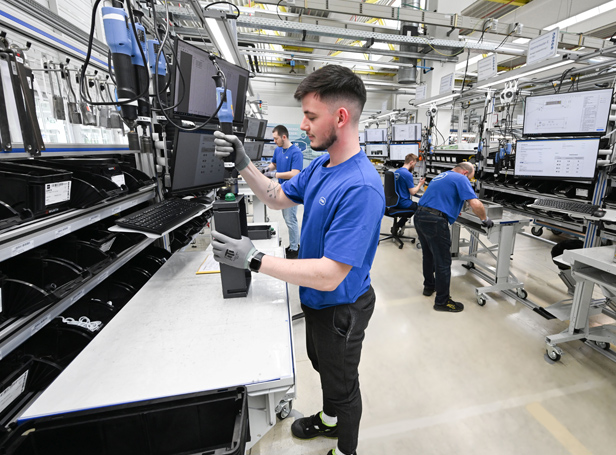Artificial intelligence (AI) is not just another technology in the IT landscape. It is a key driver of innovation and efficiency, optimizes workflows and opens up new opportunities for greater profitability. To take full advantage of the potential offered by AI, R. STAHL is pursuing a comprehensive approach within the scope of its digitalization strategy.
R. STAHL’s digitalization strategy includes, among other things, establishing basic AI capabilities within the company in order to benefit from both short-term efficiency gains and long-term strategic advantages. For general tasks, there are already a number of good solutions on the market. But when it comes to generating product-specific added value for our customers, as is the case with our DigitalTwin platform, for example, there is no off-the-shelf AI system that does the job. This is why R. STAHL gets involved in the development of individual tasks itself and invests in the three components of powerful AI systems. First: trained AI models or algorithms that can solve certain tasks. Second: closed and secure data room for training. Third: Infrastructure in the form of powerful computing resources.

COMPONENTS FOR HIGH-PERFORMANCE AI
Platform-independent business models
AI application cases at R. STAHL include sales support and optimization of customer interactions as well as the automation of order and delivery processes in order management with SAP connections. On the basis of our collected data, this is already 80 percent automated in a trial version, and the trend is increasing, as AI is constantly being trained and can thus deliver ever better results. We also plan to use this technology in additional areas. Overall, this has a positive impact not only in terms of increased efficiency, but also in terms of reduced susceptibility to errors. “There are of course also expensive enterprise solutions for these different requirements”, says Sezai Colak, Vice President Digitalization at R. STAHL. “But our modular system, which is comparable to an app store and does not require expensive AI consulting, is much more interesting for SMEs that only use a small part of it.” R. STAHL therefore relies on an infrastructure-independent platform for these applications and plans to develop corresponding business models. “Independent analyses have identified an enormous market volume for this area, where we believe we have relevant opportunities as a technology leader and early adopter”, says Sezai Colak. In this context, R. STAHL is also seeking ISO 42001 certification.
Structured step-by-step approach
In principle, R. STAHL’s digitalization strategy is designed to integrate AI into the company in a targeted manner to accelerate processes, enhance efficiency, generate growth and create added value. We are following a structured phase model in order to develop business models from initial applications and monetize them: The first phase involves identifying and testing pilot projects, after which standardized processes and governance structures will be established to scale AI applications on a global basis. Structured management of AI use cases ensures that AI projects are prioritized, implemented and reviewed. We never look at AI in isolation, but integrate it into our corporate strategy and closely link it to our company goals.

AI APPLICATIONS
These articles might also interest you







![[Translate to Englisch:] [Translate to Englisch:]](/fileadmin/user_upload/mitarbeiter/01_DE/07_Blog/00_Allgemein/blog-explosionsschutz-rstahl-startseite-279x205.jpg)
![[Translate to Englisch:] [Translate to Englisch:]](/fileadmin/user_upload/mitarbeiter/01_DE/07_Blog/00_Allgemein/blog-explosionsschutz-rstahl-ueber-den-blog-279x205.jpg)
![[Translate to Englisch:] [Translate to Englisch:]](/fileadmin/user_upload/mitarbeiter/01_DE/07_Blog/00_Allgemein/blog-explosionsschutz-rstahl-autoren-279x205.jpg)
![[Translate to Englisch:] [Translate to Englisch:]](/fileadmin/user_upload/mitarbeiter/01_DE/07_Blog/00_Allgemein/blog-explosionsschutz-rstahl-newsletter-expert-mail-279x205.jpg)
Write new comment